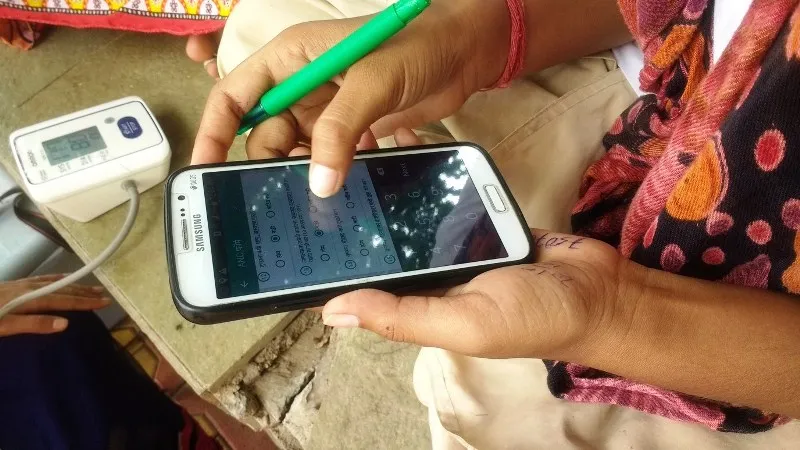These 7 startups are working to better the quality of life in India’s villages
People in many rural areas are still deprived of clean drinking water, electricity, education, and healthcare. These social startups are trying to bring about a change here.
India is rising, but is this growth only seen in urban areas? Even as the Bharat versus India debate continues, Rural India continues to lag Urban India on every parameter of progress, be it GDP, employment, literacy or health. Even as NGOs and the government make efforts to bridge the urban-rural divide, social startups have come to the fore to help the underserved.
YourStory lists seven startups that are innovating to improve the quality of life in rural India.
Niramai
Bengaluru-based health-tech startup Niramai was founded by Geetha Manjunatha and Nidhi Mathur in 2016. Niramai, which means “free from illness” in Sanskrit, has developed a cancer-screening software that is safe, non-contact, and radiation-free.
Niramai, which stands for Non-Invasive Risk Assessment with Machine Intelligence, uses a high-resolution thermal sensing device to scan the chest. It uses cloud-hosted analytics solution to study thermal images and a SaaS solution (which uses AI and machine learning) to detect early signs of breast cancer.

While a digital mammography costs around Rs3,500, a scan done using Niramai will cost around Rs 1,000. The affordability makes the solution is ideal for smaller towns and villages. According to media reports, the startup is collaborating with non-profit organisations and government agencies to introduce the technology in rural India by organising screening camps.
The founders claim that unlike mammography which works only on women above 40 years of age, their solution can detect tumours in women of all age groups and without any side effects. The software can reportedly detect tumours five times smaller than what clinical examination can detect.
In April2017, Niramai raised an undisclosed amount in their seed round from Flipkart Co-founder Binny Bansal, Pi Ventures, Axilor Ventures, 500 Startup, and Ankur Capital.
Gaatha
Ahmedabad-based Gaatha is an ecommerce platform that sells traditional Indian handicrafts. It began in 2009 as a project by three National Institute of Design students. In August 2013, Sumiran Pandey, Shivani Dhar, and Himanshu Khar founded Gaatha, where handicraft products are available for sale.
Gaatha's products include clothes, jewellery, paintings, and stationery, crafted by artisans of Gujarat, Rajasthan, Madhya Pradesh, and Kashmir. They use recyclable materials such as bamboo, wood, leather, fibre, and even urban waste! The founders, who want to help bridge the gap between artisans and customers, say Gaatha helps sell craft items “not as objects, but as stories”.

The startup claims to receive around 450-600 orders per month. Their products' prices differ from category to category - stationery prices start at Rs 250 while the prices of paintings can go up to Rs 10,000. Gaatha Handicrafts Pvt Ltd was one of the three NID-Ahmedabad incubatees that received Rs 10 crore funding from the Central Government in 2009.
Rozgar Dhaba
Inspired by ChaiPoint, entrepreneur Vinod Pandey founded Rozgar Dhaba in Shehore district of Madhya Pradesh, in January 2018. Apart from selling tea and refreshments, Rozgar Dhaba works as a centre where customers can get information on employment opportunities.
People seeking job opportunities or willing to sell their products can display information in the stall. Similarly, employers can also put up their requirements. Rozgar Dhaba, after collecting information from local vendors and employers, connects people seeking job opportunities with government agencies, skill centres, NGOs, district agricultural centres, and small, local businesses. As many as 10 villagers are employed in the dhaba itself.

Rozgar Dhaba’s revenue comes from its sale of tea and snacks and advertisements put up by employers and job-seekers. Vinod’s business, which includes two Rozgar Dhaba outlets currently, is bootstrapped. The founder claims to serve more than 1,000 customers in a month. It has hosted 20 job fairs and five farm produce sale displays in the last nine months.
Vinod, who claims to use all his profits for the development of villages, now plans to recruit women and organise workshops to attract women to Rozgar Dhaba.
Maatritva
Maatritva, a Nasik-based mobile health platform for midwives, was founded by Pritish Agarwal, Abhishek Verma, and Garima Dosar in April 2017. The app aims to prevent complications for pregnant women and enable safe deliveries by identifying and tracking high-risk pregnancies.
The first pilot of Maatritva was launched on August 5, 2017, at the Primary Health Centre (PHC) in Amboli, a tribal village in Maharashtra. The programme was designed in the regional language with an option to be used without the internet as some areas have zero mobile network connectivity. Midwives used the platform to record medical information of pregnant women in antenatal clinics after conducting tests.

Positive results led to the scaling up of Maatritva. It presently has over 1,000 active users and 500 midwives, and has screened more than 13,000 pregnant women. Maatritva also involves Asha workers, who visit the houses of pregnant women once a reminder is sent to them. Women with high-risk pregnancies are referred to a high-level medical officer.
The trio intends to add various other features, such as modules for referrals, information escalation, and birth preparedness.
Uravu Labs
Hyderabad-based Uravu Labs has built multiple products to "source water from thin air," using 100 percent renewable energy. Founded by 25-year-old Swapnil Shrisvastav, Uravu Labs claims to create a “new kind of decentralised water infrastructure”.
SWAG, one of Uravu Labs' products, sources drinking water from atmospheric air through condensation. The product is attached to air filters that strain out dust particles through a three-stage purification process. The company claims to produce 200 litres of water each day. EVA, an “aqua panel”, harvests water from air by using the power of the Sun. Based on patent-pending technology, the founder says it is a modular, scalable, and simple device that works even in dry and arid areas.
Swapnil’s aim is to provide an alternative source of freshwater during harvesting and increase water security in rural India.
GoCoop
Bengaluru-based GoCoop is an online social marketplace that connects cooperatives and community-based enterprises to weavers and artisans. The startup was founded in 2005 by Siva Devireddy.
GoCoop provides a transparency in the craft supply chain. The platform also supports wholesalers, retailer, and brands for efficiently sourcing hand-made fibres directly from producers, balancing the price for both sellers and buyers.

GoCoop's website claims that the platform has more than 30,000 products, 15,000 registered users, more than 250 sellers, and over 4,500 cooperatives.
In 2016, GoCoop raised an undisclosed amount in SeriesA funding from Infosys Co-founder Kris Gopalakrishnan, Saha Fund, Unitus Sees Fund, and Indian Angel Network.
Chikitsak
Bengaluru-based Chikitshak is a healthtech startup by Milind Naik in 2014. It aims to bring healthcare solutions to the rural population who don’t have access to affordable primary healthcare. Chikitsak’s solution combines a portable and easy-to-use medical screening kit with technology that can be deployed through low-skilled healthcare workers.
The startup focuses mostly on non-communicable diseases and provides cost-effective screenings, in the comfort of a patient's home and at prices not exceeding Rs 200. The patient's basic details, such as height, weight, pulse, blood pressure, blood sugar, and vision tests, are recorded directly without any manual intervention, leaving no room for human error. The data, stored in a cloud-based Electronic Medical Record system, is available as prints and over the phone.
The startup trains workers during a three-day workshop, after which these workers are skilled enough to be deployed. Milind says their field workers help adopt a preventive approach towards health and serve as early identification agents.
The company, incubated by the Government of Karnataka, was earlier operating at the NASSCOM Startup Warehouse, Bengaluru.







